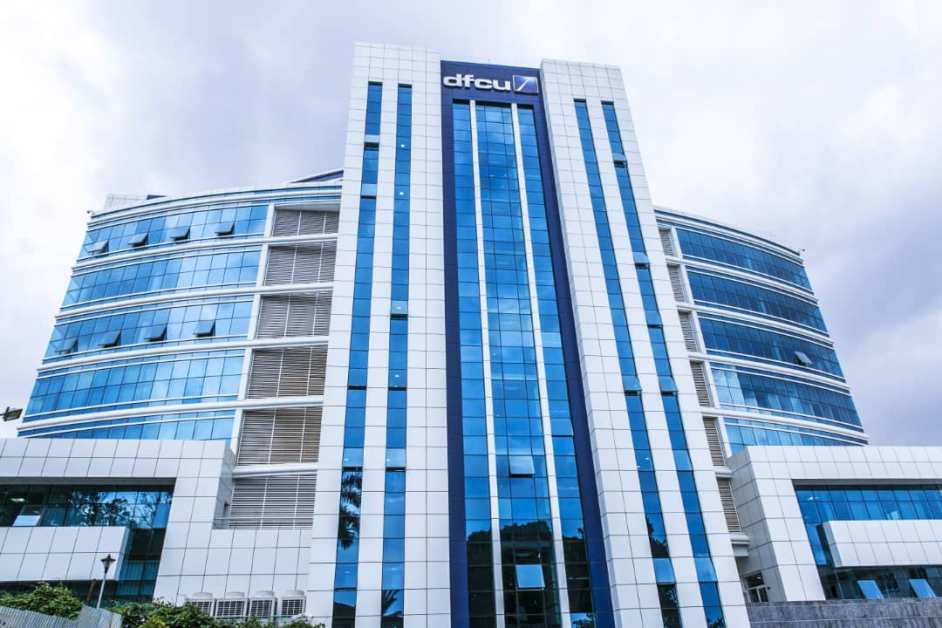dfcu Bank’s Head Business Banking, Ronald Kasasa
dfcu Bank in partnership with Deloitte Uganda recently held a webinar discussion with contractors in the power sector on how to sustainably recover the post-Covid-19 period.
The discussion, which was highlighted by Selestino Babungi, Umeme Managing Director as the keynote speaker touched key topics such as the current climate of the power sector, financing, contracts, human capital, and workforce safety and wellbeing – issues the contractors have are dealing with in the wake of the COVID-19 pandemic.
Selestino Babungi noted that the power sector is a good indication of what is going on in the country. Being one of the main sectors in the development of the country’s economy, the sector is vital to ensure the survival and growth of the economy and the population.
Speaking on the impact of Covid-19 on the power sector, Babungi said; “During the lockdown, electricity demand dropped by 30%. Demand from commercial customers dropped by 11% compared to last year. Demand from small industries dropped by 10%. Heavy industries dropped demand by 9.3%. There was however an increase in domestic demand by 5.2% and an increase of 16% consumption by the top 40 industries in the country. This means that people were working more at home and there was an increase in demand especially for Real Estate products such as cement and steel. Covid-19 has impacted industries and people, but we should be hopeful that this will not last forever.”
On the issue of working capital management, Benjamin Mugema a Senior Consultant ,Strategy & Operations with Deloitte Uganda urged the contractors to keep a keen eye on their working capital to ensure a healthy working capital.
“Covid-19 has affected all industries and many of them are facing similar working capital shortfalls. But business owners need to have a very good understanding of where their working capital is. One of the things business owners can do is to leverage data and technology to best understand their industries,” Mugema said.
One of the biggest concerns that the sector has been dealing with has been human capital management and occupational health and safety. Many contractors have been forced to downsize their workforce to survive the Covid-19 economic effects.
Turikurungi Delhi, Deloitte Uganda’s Senior Consultant Human Capital said; “It is very important for the employers and the organization to take note of how their staff feels about how they’re being treated within the organization. Because the survival of the organization will depend on how the staff members perceive them.How the staff is treated in this period will determine which company is a valuable employer that people would work with. Ensuring that employees can trust that they’re assured of a safe workplace is very important to the organization.
Speaking on the availability of funding options, dfcu Bank’s Head Business Banking, Ronald Kasasa noted that the bank acknowledges the issues that power sector players were facing, some of which include lack of collateral, poor record-keeping, lack of resources, unstable foreign exchange rates, long procurement processes, lack of access to markets, delayed payments with no compensation, and competition from foreign companies, and it has come up with tailormade solutions to fit the needs of the contractors in the power sector.
“As dfcu Bank, we understand the challenges that contractors are facing in the power sector, so we came up with propositions to address these challenges. We categorized our financing into two categories. Unfunded – where we provided instruments to support businesses to be able to do the job and create credibility with employers and creditors. These included; unsecured bid guarantees of up UGX 500,000,000, Guarantees and Bonds, and Letters of Credit. Funded – where we give the contractors money. This includes; unsecured contract financing of up to UGX 100,000,000, invoice discounting of up to 70% invoice value, contract financing of up to 50% of the contract value, and asset financing of up to 80% of the asset value. On the financial mitigants that the contractors face, dfcu Bank provides collateral risk cover of 30% minimum acceptable collateral and insurance cover and this has a turnaround time of 5 hours,” Kasasa remarked.
Online customer events such as these continue to be instrumental in dfcu’s engagement with its customers and sharing insights that will support businesses cope with the effects of COVID-19.






